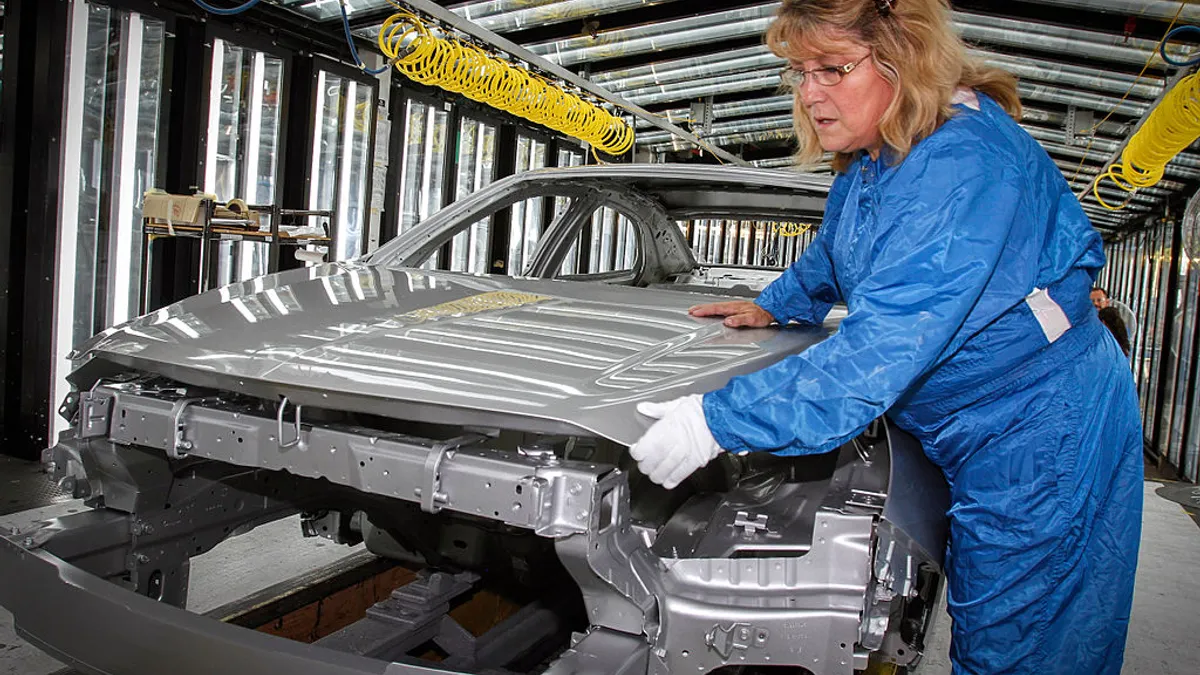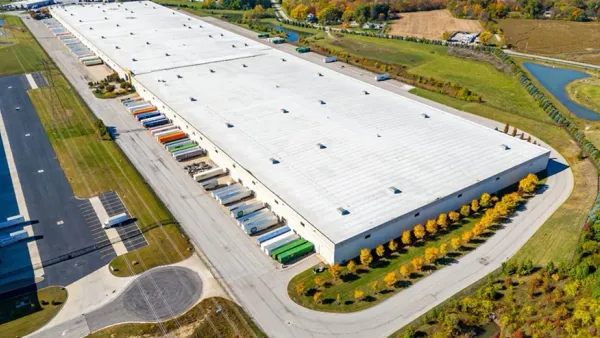Dive Brief:
- Restarting production in early May with the ongoing coronavirus pandemic would be too dangerous for employees at automotive manufacturing facilities, United Auto Workers (UAW) union President Rory Gamble said last week in a statement.
- "We have not done enough testing to really understand the threat our members face," Gamble said. "We want to make sure the scientific data is supportive and every possible health protocols and enhanced protections are in place before UAW members walk into the workplace."
- Ford, General Motors, and Fiat Chrysler have been in negotiations with UAW about reopening the factories and have been highlighting the operational changes being made at facilities from temperature checks to increased social distancing. "Significant planning is underway to safely restart production," a GM spokesperson told Supply Chain Dive in an email. "We are in regular contact with federal, state, and local authorities, our suppliers, the UAW, and our manufacturing team. We have not yet announced a restart date. When people do return to work, whether for planning or for regular production, we will use screening, cleaning, and social distancing strategies designed using the best medical and scientific data available, including guidance from the CDC."
Dive Insight:
Automotive production shut down across the U.S. in mid-March as cases of COVID-19 were increasing across the country. Some facilities have transitioned to making essential items like ventilators or face shields, but the companies have been working to figure out how and when they can restart automotive production.
The workforce, being asked to clock in and interact with coworkers or customers as a disease with no cure spreads across the world, is voicing concern. Workers have organized at Instacart and Amazon to demand higher pay and greater protections, according to The New York Times.
At a Smithfield meat processing plant in Sioux Falls, South Dakota more than 200 cases spread. The Centers for Disease Control issued more than 100 recommendations to the facility as a result of the outbreak. Smithfield now faces a lawsuit brought by employees.
As automotive factories remain shuttered it is not just the big three companies that are trying to figure out operations, but an entire network of suppliers that feed the just-in-time supply chain. And it's not just supply issues companies have to navigate: stay-at-home orders across the country have been a significant hit to demand.
"If you're on home lockdown nobody's going out and shopping and buying vehicles," Sigmund Huber, a senior managing director at Conway Mackenzie told Supply Chain Dive in an interview. But as the industry grapples with an unknown demand forecast, it has to figure out how to operate factories safely, Huber said.
"There's a whole bunch of practical issues regarding how you actually run a plant that people don't know the answers to yet," he said.
One automotive supplier, Lear, has released an edition of its Safe Work Playbook to provide guidance for operating safely during a pandemic. "While this is not a one-size-fits-all approach, we are sharing these potentially helpful recommendations with other companies as they develop their own plans for resuming operations," Lear CEO Ray Scott said in a press release. The 80-page playbook covers topics like deep cleaning and social distancing.
Ford plans to bring a small number of employees back to its Detroit factories today to get the locations ready to restart production but said a start date had not yet been determined, according to the Detroit Free Press.
Last week, Michigan Gov. Gretchen Whitmer extended the state's stay-at-home order until May 15. The UAW said it supported the extension.
"The numbers we’ve seen in the past week have shown a plateau in positive cases, but Michiganders must continue doing their part to fight this virus and protect their families," Michigan Department of Health and Human Services Chief Deputy for Health and Chief Medical Executive Joneigh Khaldun said in a statement last week announcing the extension.
Shefali Kapadia contributed to this report.















